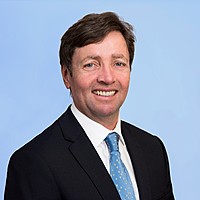Superbugs are outsmarting antibiotics

Magellan
In 1938, Ernst Chain, a German-born biochemist working at Oxford University, found an article on penicillin written nine years earlier by UK bacteriologist Alexander Fleming. In 1928, by fluke, Fleming noticed a zone around an invading fungus on an agar plate in which the bacteria did not grow. After isolating the mould, Fleming identified it as belonging to the Penicillium genus.
But doing anything more with the unstable compound was beyond Fleming’s skills, which is where Chain stepped in. He proposed to his supervisor, Australian pathologist Howard Florey, that they isolate, purify and test the compound to see if it could kill microorganisms without harming their host. Florey, seeing penicillin’s potential, assembled a team that in 1939 successfully treated mice. By 1941, the group was experimenting on sick people.
In 1942, Fleming, who obtained some of the Oxford team’s scarce penicillin, saved a UK woman who was dying of an infection. The Times of the UK published the feat, without referring to Fleming or Florey. Fleming’s boss wrote to the newspaper praising Fleming who boasted in press interviews while Florey refused to speak to the media. Thus, many people today wrongly believe Fleming gifted penicillin to the world, even though Chain, Fleming and Florey equally shared the Nobel Prize and those in the know thought a self-promoter stole the credit from Florey.
What matters more is Florey’s vision led to one of history’s key medical feats. The drug’s breakthrough advantage was how cheap it was to produce. The antibiotic became a worldwide cure and boosted life expectancy, mainly by reducing childhood deaths.
Penicillin’s wonders inspired the development of other affordable antibiotics that could combat an ever-wider array of ailments. As antibiotics, antifungals, antiviral and other drugs that are grouped as antimicrobials were developed, optimists dared talk of a world without deadly infections.
What could go wrong? Four things. First, in the advanced world where prescriptions are regulated, doctors overprescribed and misused antimicrobials. Second, in the unregulated emerging world, people can buy antibiotics at pharmacies without prescriptions and even find them at markets and shops. People thus mistreat or overtreat themselves with these medicines because it’s cheaper and easier than seeing a doctor. The result is that up to 70% of human use may be inappropriate. Third, 80% of antibiotic use worldwide is to fatten farm livestock and prevent livestock infections. Efforts to curb such misuse have failed. The fourth problem is that antibiotic and antifungal residue is too prevalent in third-world drug-making hubs such as India’s Hyderabad.
The result? The natural immunity microbes develop over time has accelerated. ‘Superbugs’ have built resistance to antimicrobials and global deaths from drug-resistant bugs are mounting. Before antibiotics, only about one in 10 million bacteria would prove resistant to antibiotics. Now, it is estimated that up to 90% of bacteria causing infections are immune to previously effective antibiotics.
As for deaths, a study led by researchers from the University of Washington out in January attributed 6.22 million deaths worldwide in 2019 to drug-resistant microbes.
The study suggested five ways to combat superbugs. First, improve sanitation and hygiene, to limit infections. Second, prevent infections through vaccinations where possible. Third, reduce antimicrobial use in animals. Fourth, minimise the misuse of these drugs with people. Fifth, boost investment to find drugs that can defeat superbugs.
Here lies a key handicap in the battle against infections that fail to respond to treatment. Few superbug-busting drugs are appearing because investment in the field is minimal compared with other spheres of public health. Only about US$1 billion a year worldwide is spent on research to combat superbugs compared with US$50 billion a year tackling HIV/AIDS in low- and middle-income countries.
Pharmaceutical companies, which rely on prescription-based sales for revenue, aren’t investing enough because they can’t recoup an adequate return for three reasons. First, the cheapness of antimicrobial generics makes hospitals reluctant to pay high prices for superbug stoppers. Another problem is that medical facilities use new superbug-busters as a fallback when generic treatments fail. A third hitch is that antimicrobials are taken for a short time only, whereas profitable drugs are usually ones that people take daily for years. The outcome is that sales volumes are too small to make new drugs profitable.
As a sign of how fragile are the economics in this sphere, Big Pharma players have abandoned the superbug fight and smaller antibiotic-development companies struggle to survive, even after gaining approval for their finds.
A crisis around superbugs is building. A market failure means capitalism can’t yet derive a solution to diffuse a foreseeable catastrophe. Governments need to do more because only alarming levels of deaths will improve the economics. Even though the pharmaceutical industry is likely to solve the problem in extremis, it would be too late for millions of people.
To be fair, policymakers are trying to stop the misuse of antibiotics – but with little success in the emerging world. Research efforts against superbugs are underway but moneywise these efforts don’t compare with the billions Big Pharma spends on research in lucrative areas.
Greater efforts, spurred by governments, are needed. Surely with enough resources poured into research, someone will discover a cure for superbugs. No one will care if self-promoters pinch the credit.
For the full version of this article and to view sources, visit our website

Michael Collins is an investment specialist at Magellan. Michael has worked as an investment specialist/commentator for money managers in Australia since 2000. Before that, Michael worked for 14 years as a business journalist for mainstream...
Expertise

Michael Collins is an investment specialist at Magellan. Michael has worked as an investment specialist/commentator for money managers in Australia since 2000. Before that, Michael worked for 14 years as a business journalist for mainstream...

